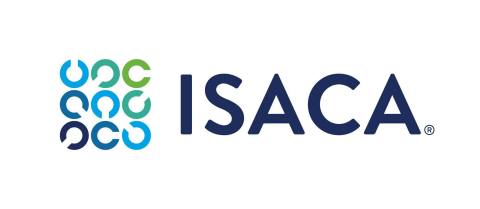ISACA Guide Helps Enterprises Manage Privacy Risk and Threats of 5G Technology
ISACA Guide Helps Enterprises Manage Privacy Risk and Threats of 5G Technology
Free resource also provides mitigating controls for 5G privacy threats
SCHAUMBURG, Ill.--(BUSINESS WIRE)--5G technology can transform the experience of its users – providing a faster network with greater capacity and less delay – but with its new capabilities come new privacy threats. ISACA’s white paper, 5G Privacy: Addressing Risk and Threats, reviews 5G technology from the privacy perspective, including user privacy-related elements, threats, and mechanisms and regulatory means to address threats and risk.
Several industries use applications powered by 5G services, but those with most potential for transformation by its adoption include retail, healthcare and manufacturing. The publication explores the capabilities of 5G technology, including:
- Supporting diverse types of static and mobile Internet of Things (IoT) devices
- Decreasing network energy usage
- Meeting technical and services requirements of specific customers/market segments via the 5G network slicing function
- Revolutionizing industries by offering endless possibilities with virtually no limits, such as drone deliveries, cloud-connected traffic control, and remote surgery.
Privacy on the 5G network can be divided into three main categories:
- Data privacy: With many smart and heterogeneous devices residing on and connected to each other on a 5G network, the network will have a huge volume of data, such as sensitive banking information, that must be protected.
- Location privacy: With the introduction of 5G, several service providers constantly track the location of users who access services via the network.
- Identity privacy: Identity-related information associated with a device, system or individual must be provided to and used by a 5G network to establish a connection.
The ISACA paper delves into 5G-related privacy threats related to those categories and shares mitigating controls for each one. The privacy threats highlighted include:
- Identity privacy exposure (user identity catching)
- Risk of unauthorized data access and data breaches
- Issues in transboundary data flow (transborder privacy requirement differences)
“With the expanded surface and granularity of 5G technology, new privacy concerns arise, including a very high risk of leaking personal data or exposing hints that could reveal sensitive personal information,” says Safia Kazi, Principal, Privacy Professional Practices at ISACA. “To build and maintain the trust relationship between consumers and service providers, effective consideration of privacy issues is critical.”
To download a complimentary copy of 5G Privacy: Addressing Risk and Threats, visit https://store.isaca.org/s/store#/store/browse/detail/a2S4w000005Gu8KEAS. Access additional ISACA resources at www.isaca.org/resources and www.isaca.org/digital-trust, and ISACA’s privacy-focused Engage community here.
About ISACA
ISACA® (www.isaca.org) is a global community advancing individuals and organizations in their pursuit of digital trust. For more than 50 years, ISACA has equipped individuals and enterprises with the knowledge, credentials, education, training and community to progress their careers, transform their organizations, and build a more trusted and ethical digital world. ISACA has more than 165,000 members in 188 countries, including 225 chapters worldwide. Through its foundation One In Tech, ISACA supports IT education and career pathways for underresourced and underrepresented populations.
Contacts
Bridget Drufke, bdrufke@isaca.org, +1.847.660.5554
Emily Ayala, communications@isaca.org, +1.847.385.7223
